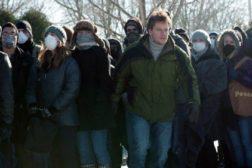Home » health
Articles Tagged with ''health''
Permanent & irreversible
But noise-induced hearing loss is 100-percent preventable
October 1, 2011
Study: Shift schedules not as unhealthy as they used to be
Hormone changes can be minimized
September 30, 2011
Volunteer your way to better health
No benefits, though, if your reasons are selfish ones
September 8, 2011
Never miss the latest news and trends driving the safety industry
eNewsletter | Website | eMagazine
JOIN TODAYCopyright ©2024. All Rights Reserved BNP Media.
Design, CMS, Hosting & Web Development :: ePublishing








